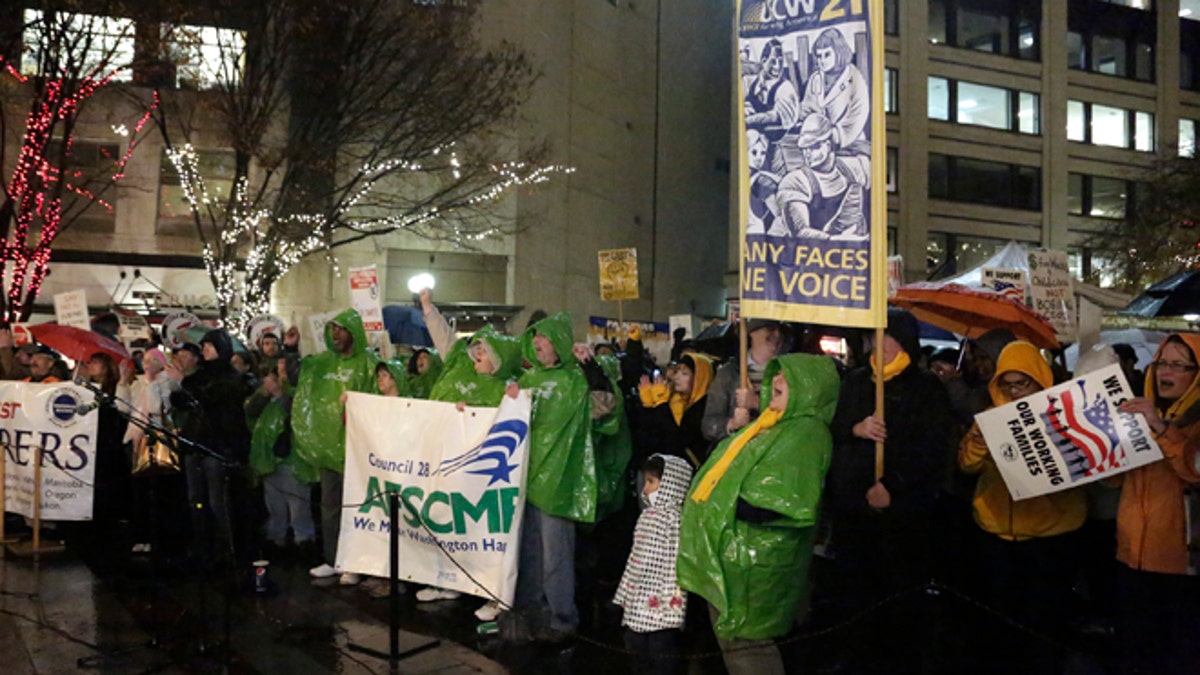
FILE: Nov. 18, 2013: A rally to show support for a machinists union, in Seattle, Wash. (REUTERS)
The loosening of federal rules for political spending has done more to help Democrats than Republicans, according to two recent analyses of campaign contributions.
Those facts run counter to a well-established national media narrative — one often repeated by liberal groups and Democratic lawmakers who bemoan the influence of corporate cash in politics after the Supreme Court’s ruling in 2010 opened the flood gates to unlimited political spending — that says Republicans and their big business allies have been able to unduly influence elections with unfettered spending.
The collection of Supreme Court rulings known as Citizens United opened the door to the creation of so-called “super PACs” with no spending limits. While high-profile conservatives like the Koch Brothers and Sheldon Adelson have been at the center of attention over their political spending, their pockets are hardly the deepest.
The rulings also allowed unions — recognized under federal election law as being the same as corporations — to form their own super PACs. Liberal billionaires like Michael Bloomberg have done the same.
Both sides play the game, but which has benefited the most from unfettered political spending?
When all the numbers were added up, it wasn’t even close in 2013.
An analysis by the Sunlight Foundation, a nonprofit that tracks political spending, of groups and individuals who wrote checks of more than $10,000 to super PACs and other political committees found big labor outspent big business by a margin of more than 2-to-1 during 2013.




